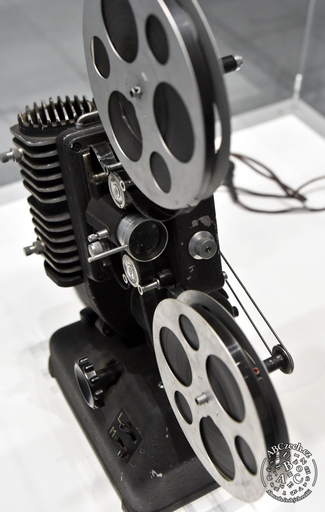
The term Czechoslovak New Wave or Czech New Wave refers to the generation of film directors and screenwriters who began working in 1960s. It is one of the pinnacles of world cinematography and the only Czechoslovak filmmaking movement to enter the history of world art. The unofficial, unorganised movement, also called “the spring of Czechoslovak film”, ended with the advent of Normalisation at the beginning of 1970s. The Czechoslovak New Wave is generally regarded as one of the most important movements in world cinematography after Italian Neorealism.
The New Wave appeared due to a relaxation of the communist regime, a liberalisation of culture and a weakening of film censorship in Czechoslovakia in 1960s. It encompasses a whole decade of filmmaking activity, although the works belonging to the New Wave are not temporally limited. Some of their defining characteristics are actors’ improvisations and using non-actors, filming in black and white or using colour filters, long dialogues with intraframe editing, hand-held filming, black humour, absurdity and social criticism. The personalities of characters, usually ordinary people, are not clear cut and people are depicted as natural human beings. Another typical characteristic is the strict rejection of ideologies, meaning that films should not depend on political commissions. The authors were inspired by literature and theatre, collaborating on scripts with prominent writers. Many literati of the period, e.g. Pavel Kohout, Bohumil Hrabal, Milan Kundera, Josef Škvorecký, Vladimír Körner, Ladislav Fuks, Eva Kantůrková, became dramaturgs or taught at the Film and TV School of the Academy of Performing Arts (FAMU). This generation produced many good adaptations of literary works, including two Oscar-winning films (The Shop on Main Street – Obchod na korze and Closely Watched Trains – Ostře sledované vlaky). Another typical feature was the unprecedented diversity of genres. Parable was revived (e.g. The Cremator – Spalovač mrtvol by Juraj Herz, 1964) as well as film musicals and parodies (e.g. Lemonade Joe or Horse Opera – Limonádový Joe aneb Koňská opera by Oldřich Lipský and The Hop-Pickers – Starci na chmelu by Ladislav Rychman, both from 1964). František Vláčil and Otakar Vávra contributed to the historical film and national history started to be polemically revised in films on war themes (e.g. Death Is Called Engelchen – Smrt si říká Engelchen by Ján Kadár and Elmar Klos, 1963).
The most prominent authors of the Czech New Wave are Miloš Forman, Věra Chytilová, Jaromil Jireš, Pavel Juráček, Jiří Menzel, Jan Němec, Jaroslav Papoušek, Ivan Passer, Jan Schmidt, Evald Schorm and František Vláčil. Directors of the older generation – Otakar Vávra, Elmar Klos, Vojtěch Jasný, Jiří Weiss and Karel Kachyňa – also made their contributions. The adaptation of stories by Bohumil Hrabal Pearls of the Deep (Perličky na dně, 1965) is regarded as an unofficial manifesto of the New Wave.
2016-2020 ABCzech.cz - © Filozofická fakulta Univerzity Karlovy
Content from this website may be used without permission only for personal and non-commercial purposes and with the source cited. Any other use is allowed only with the authors' consent.
This web application Sonic.cgi meets GDPR requirements. Current information can be found here.